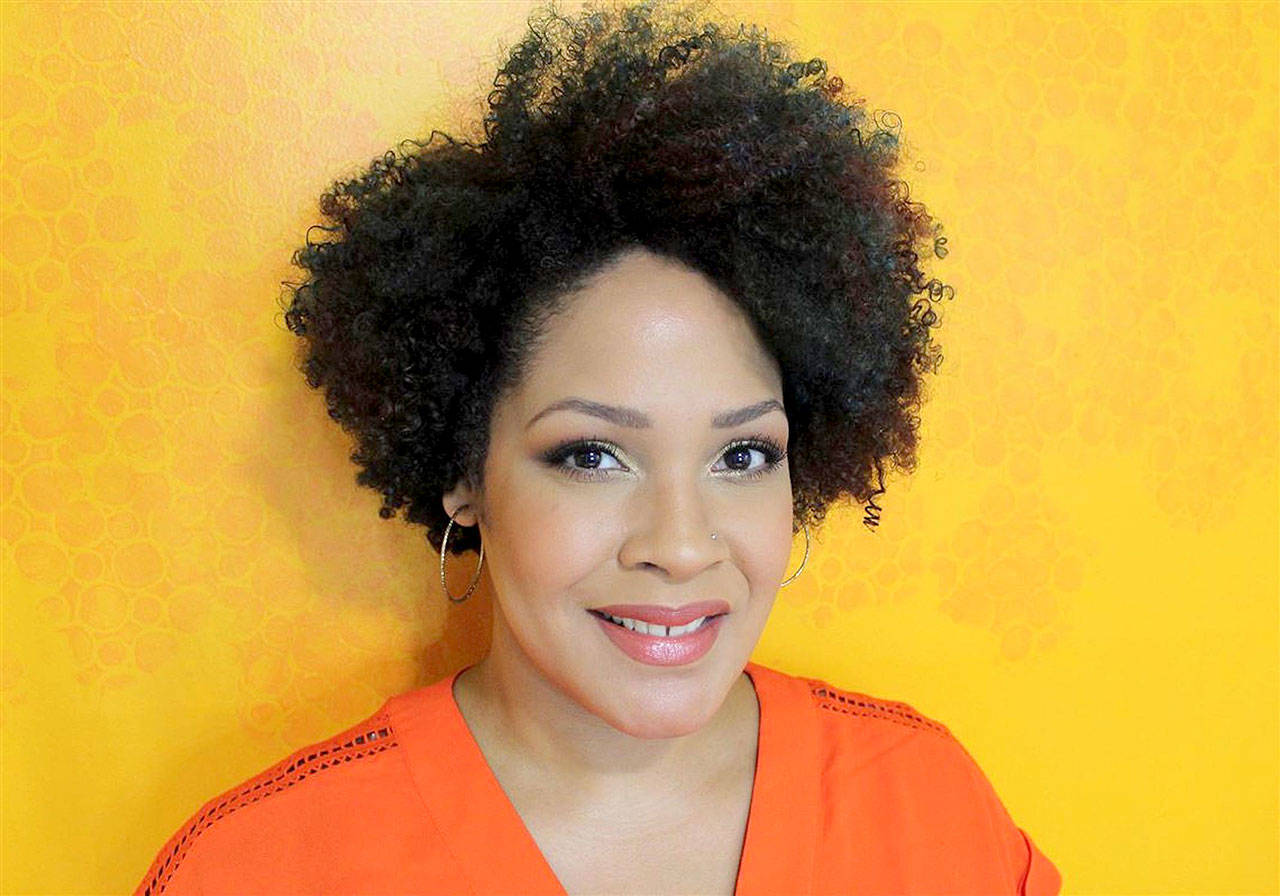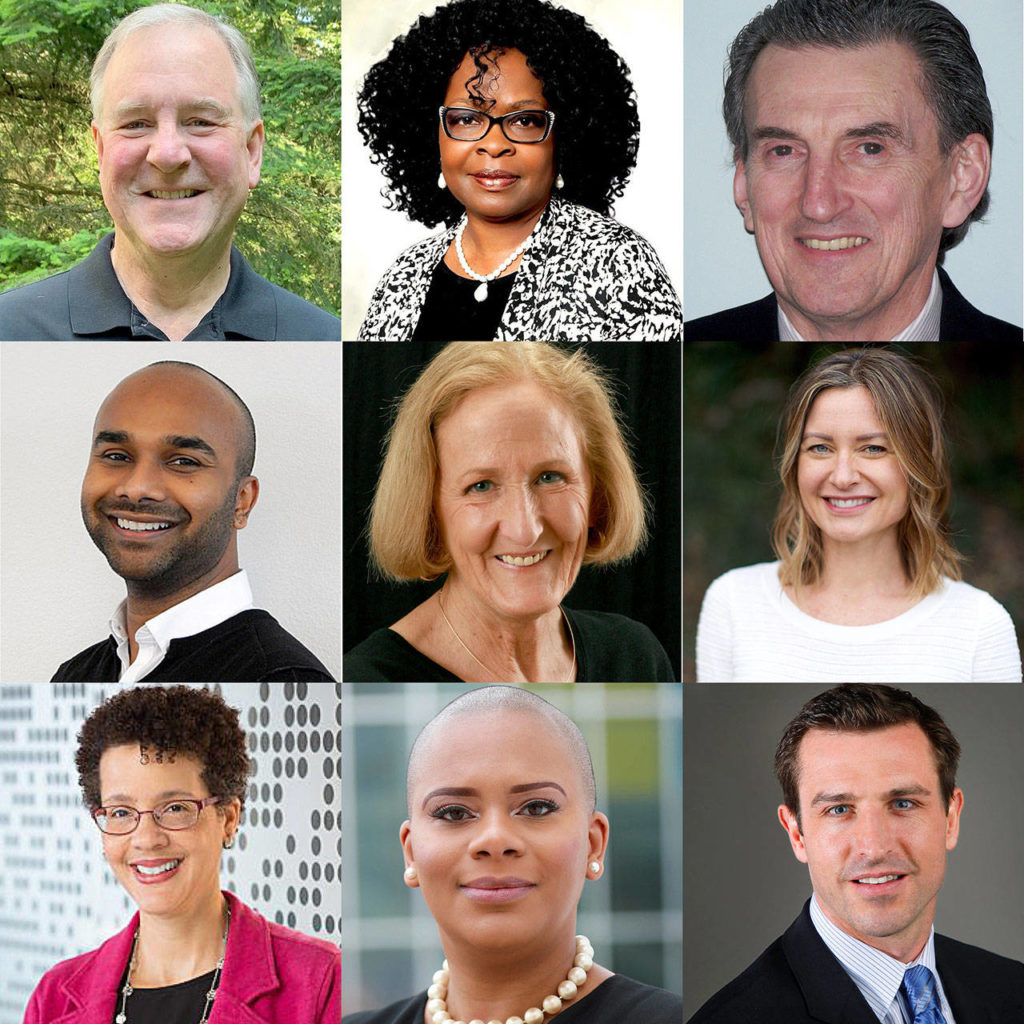Ijeoma Oluo wants you to know the pandemic is a stark reminder that race is closely related to physical and mental well-being.
Oluo, bestselling author of “So You Want to Talk About Race,” will deliver that message and more in her keynote speech at a Snohomish County health summit Oct. 8.
Oluo is a writer, speaker and self-proclaimed “internet yeller” on racial, sexual, economic and gender issues. She is the author of “So You Want to Talk About Race,” an examination of race in America, “Mediocre,” a history of white male American identity and “The Badass Feminist Coloring Book,” featuring 45 sketches of her favorite feminists.
As one of one of Seattle’s strongest voices for social justice, Oluo has attracted a Twitter following of more than 281,200. She helped launch The Establishment, a woman-run news and opinion website where she was an editor-at-large from 2015 to 2019. Oluo also was the winner of the Feminist Humanist Award by the American Humanist Society in 2018.
She will speak at the sixth annual Edge of Amazing, a virtual health summit hosted by the Providence Institute for a Healthier Community. This is the first time the event won’t be held at the Tulalip Resort Casino Conference Center. Oluo’s keynote will be live-streamed via Bluestream.
“We’re going to talk about race and physical and mental health, and how they work together,” Oluo said. “There are many ways in which they do and always have. When we look at indicators for life expectancy, health and well-being, race is one of the primary indicators of how you will fare in life.
“But studies are also showing that everyday racism in and of itself has a great impact on physical and mental health, along with, of course, medical racism and the impacts of our systemic racism. It really is impacting how long we live and how well we live in this country.”
Research has linked racism to a host of problems, including PTSD, depression, anxiety, binge drinking and eating disorders. People of color in America are not only more likely to die from cancer or heart attacks, they also have higher maternal mortality rates.
The pandemic is exposing racial disparities like few other events in recent U.S. history. Data shows that COVID-19 is infecting and killing people of color at a much higher rate.
“It’s really across the board where we’re seeing these huge racial discrepancies that can really be easily tied to systemic oppression and the impacts of systemic oppression,” Oluo said.
Oluo said talking about race is not talking for talking’s sake — it’s why we’re talking about racism in America and what we decide to do about it.
“If we’re going to find out what’s happening and the way our systems work, we have to be able to talk about how we are participating in our systems, how these systems are impacting our populations of color, and figure out what we can do collectively to change it,” she said.
“We should be talking in order to find opportunities to act, and that’s really where the talking can help.”
Viewers also will hear from Scott Forslund, the executive director of the Providence Institute for a Healthier Community; Janice Greene, president of the Snohomish County NAACP; and Stuart Elway, president of Elway Research and founder of The Elway Poll.
They will present on the 2020 Health and Well-Being Monitor for Snohomish County, an annual study by the Providence Institute for a Healthier Community.
The institute seeks to gauge overall health in the county by surveying those who live and work here by asking questions about six different areas: relationships, security, physical health, work and growth, neighborhood and environment, and mental and emotional health.
“It includes the impacts of the global pandemic,” said Anne Alkema, event manager for the Edge of Amazing conference. “We’re also touching on climate change, the current political environment, discrimination and social justice issues for the first time. What a difference a year can make.”
This year’s health conference also will include discussion by Paj Nandi, the director of Community Relations and Equity for the Washington State Department of Health; Mary Jane “MJ” Brell Vujovic, director of the Snohomish County Human Services Department; Jennifer Atkinson, an associate professor in environmental humanities at the University of Washington — Bothell and Dr. Kristin Conn, medical director of Equity, Inclusion and Diversity for the Washington Permanente Medical Group.
“They’ll explore emerging trends in the value of collectivism and the collective good,” said Alkema, who also serves as program manager for Providence Institute for a Healthier Community. “We’re built on this idea of the rugged individual and individual rights, but when we really look at it, these ideals are applied selectively to actually benefit and protect and serve the status quo.
”The disparities of COVID-19 and our nation’s response to systemic racism, violence and climate change have shined a bright light on the limits of individualism.”
The emcees for this year’s health summit are Daria Willis, president of Everett Community College, and Josh O’Connor, president of Sound Publishing Inc. and publisher of The Daily Herald.
Sara Bruestle: 425-339-3046; sbruestle@heraldnet.com; @sarabruestle.
If you stream
Edge of Amazing, Snohomish County’s virtual health summit, scheduled from 8 a.m. to 4 p.m. Oct. 8, will be available to watch via Bluestream. No need to worry about scheduling conflicts — all sessions will be recorded and available to stream for 30 days. Tickets are $25-$50. Register for the conference at www.edgeofamazing.org or by calling 425-528-0548. If the ticket cost is a barrier, email PIHC@providence.org to request a scholarship.
Edge of Amazing
The following is the schedule for this year’s Snohomish County health summit hosted by the Providence Institute for a Healthier Community. You’ll only get to watch two of the six scheduled workshops on Oct. 8, but all sessions will be recorded and available to stream for 30 days.
8 a.m.: Welcome and Opening Remarks by Kim Williams, CEO of Providence Health & Services for Northwest Washington
9:15 a.m.: Morning Break (Optional YMCA Self-care Video)
9:30 a.m.: “Your Well-being Is My Well-being: Are We Listening Yet?”
11 a.m.: Mid-Morning Break (Optional YMCA Self-care Video)
11:15 a.m.: “Getting Real About Housing Access and Affordability,” “Defying Despair” and “Behavioral Health in a COVID-19 Era”
12:30 p.m. Lunch Break (Optional YMCA Self-care Video)
1 p.m.: “Ijeoma Oluo: So You Want To Talk About Race”
2:30 p.m. Afternoon Break (Optional YMCA Self-care Video)
2:45 p.m.: “New Frontiers in the Opioid Epidemic,” “Confronting Climate Grief and Anxiety” and “Housing is Health — A Special Session”
3:50 p.m.: Closing Remarks by Scott Forslund, Providence Institute for a Healthier Community executive director
4 p.m.: Music YoU-ROCK Video Performance
Talk to us
> Give us your news tips.
> Send us a letter to the editor.
> More Herald contact information.


























